Revolution Recovery was founded in 2004, borne out of cofounder Avi Golen’s shock while cleaning out construction sites and witnessing the mass amounts of drywall that contractors were throwing away. He contacted his college friend Jon Wybar and pitched him the idea to find recycling markets for these materials.
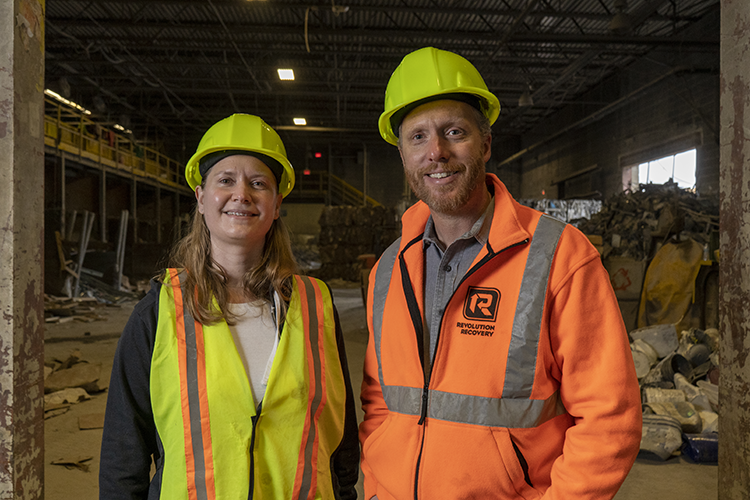
Since then, Revolution Recovery has added locations in Delaware and Allentown to become one of the largest construction and demolition recyclers in the region.
Grid’s Nic Esposito sat down with Wybar and director of sustainability Fern Gookin to reflect on the successes and challenges of this growth, and to look ahead to where the construction and demolition industry is heading.
This interview has been edited for clarity, length and style.
What did the construction and demolition recycling industry look like in 2004 when Revolution Recovery started?
Wybar: At that time, LEED and green building were just hitting the construction market. But the waste industry was not interested in multiple dumpsters to separate recycling. So after pitching people on drywall recycling, contractors kept saying, “Well, okay, but I need help with all these other materials.”
We quickly realized to tell them we could do everything. And that’s kind of how we got started and expanded to wood, cardboard, plastics, metal, concrete, brick, et cetera. But recycling wasn’t really a big thing on the East Coast for the construction industry, so we were swimming against the current. Since that time much more construction and demolition recycling has emerged. It has caught on, but it stalled out around 2016.
Why did it stall?
Wybar: I think it was because the price of oil dropped. It’s a big factor when energy prices drop. That’s bad for recycling because virgin materials are then cheaper and more affordable to produce. We used to recycle carpet, and then the price got so low that we couldn’t even cover our costs.
That certainly tracks with the rest of the recycling industry.
What are some other hard-to-recycle construction and demolition materials?
Wybar: Commercial roofing is a big one. A lot of times they are composite materials with multiple components. The best we can do is downcycle them. But in reality, some of them are just doomed.
Gookin: Yeah, there’s other composite materials like office chairs. It’s very labor intensive to take apart an office chair that might have plastics and metal and different kinds of fabrics and foams that’s all in one component. So it comes down to the economics of if it’s worth it to recover those materials. Can we do it at the same cost as landfill? The answer is often no, unfortunately, just because there’s not enough value in those materials and it costs so much in labor to do that disassembly.
In the last decade, Philly has increased its population for the first time since the mid-20th century. With that has come a building boom for single-family and multi-unit sectors. How has that affected business?
Gookin: I think there’s been tremendous growth. When I started here in about 2010, we were maybe taking in 100 tons of material a day. Now we’re taking in almost 600 tons of material a day just at our Philadelphia facility.
Even with that growth, do you feel that enough contractors know about your business?
Gookin: We do know a healthy part of certain markets, like large or mid-size general contractors, but I think there are some sectors that we still probably don’t tap into nearly enough. Like contractors that are handling their own material or have to use dumpster rental companies. We’re not on their radar because they have existing relationships.
If it’s not recycling, what other value propositions are there for why people come to you?
Wybar: In the construction business, it’s all about price and service. I like to joke and tell contractors that we have the finest dumpsters in town. And we are constantly striving to raise the bar on our service and have as competitive pricing as we possibly can.
Recycling is very much tied to landfill costs. So if we can compete with the landfill on cost, that’s going to keep our customers happy.”
— Fern Gookin, Director of Sustainability at Revolution
When it comes to policy, is there anything that the City of Philadelphia could do to help you fulfill your mission?
Gookin: Recycling is very much tied to landfill costs. So if we can compete with the landfill on cost, that’s going to keep our customers happy. And that’s going to keep the material coming into our facility. Then we’ll be able to recover more and get that material in our door. If landfill prices are up, then we’d be even more willing to put in more labor or more equipment to be able to recover as much as possible to benefit from diverting that waste and cost.
Wybar: Europe’s landfill fees are two or three times higher than they are here. Even on the West Coast the landfills are far more expensive, and that incentivizes companies to pull more material.
What are you doing within your own clientele to limit landfilled materials?
Gookin: We might recognize that some customers have a higher-quality material, so it’s easier to recover than others. It’s just the nature of their business or their work and so, we might favorably tweak their price points a little bit if we know that there’s higher amounts of cardboard or good, clean, quality wood by giving them a discount over somebody that delivers material that is not as high quality for recycling.
Illegal dumping is a huge problem in Philadelphia. What role, if any, can Revolution Recovery play in helping the city address this issue?
Wybar: We do our best to provide a service to our community at a fair price point and be customer friendly. But that only goes so far.
Some cities have free dumping of construction and demolition materials for residents at city dumps. That seems like the best option. I mean, you have to put yourself in the head of the person who’s illegally dumping to figure out how you can deter them. If somebody is running a job in Southwest Philly, and we’re kind of far from them, it’s not as convenient. There’s also instances where maybe they’re not pulling a permit on their jobs. So it’s really hard to capture that audience if they’re resistant to following normal business practices.
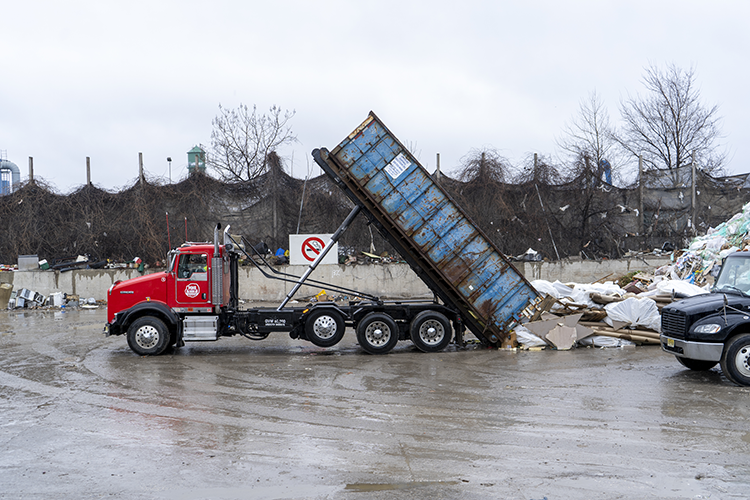
We’re sitting here on a gray day, but are there sunny skies ahead for this industry?
Wybar: I would like to stay optimistic, but I still can’t believe where the climate change discussion is in this country. And I can’t believe that we’re all not on the same page about how hard we need to work together on this problem. But I feel like the wolf is at the door and people will have to see what’s happening. So I have to be confident that people are going to snap out of it and we can start really moving forward and making real change.
Gookin: I’m hopeful that there is going to be a wake-up call or maybe a change in some of the commodity markets for difficult things to recycle. We still have challenges related to the pandemic and labor. But I’m hopeful that if we can get more serious about energy prices there will be new opportunities for commodities that haven’t really been around in the last few years. Fingers crossed.


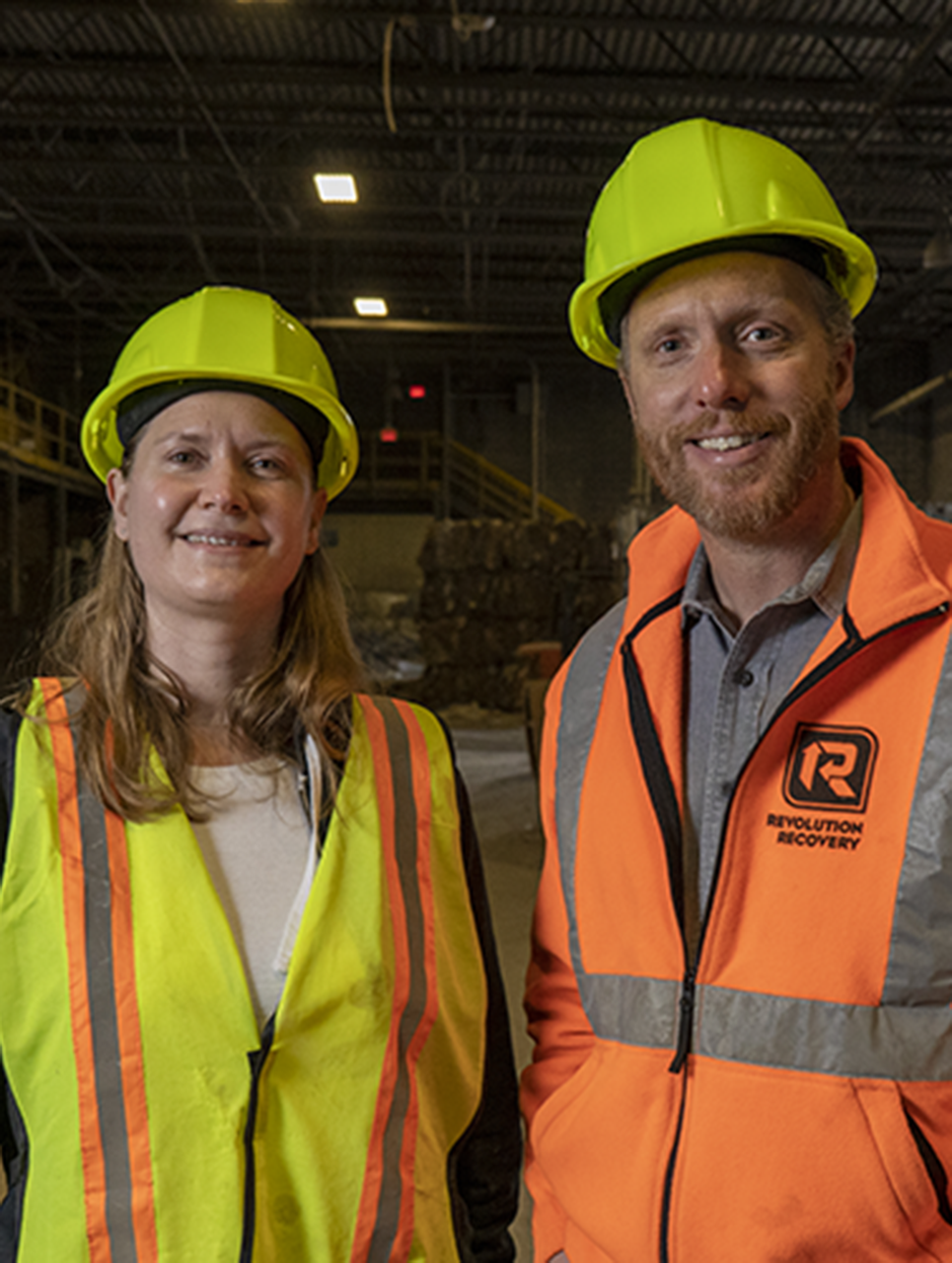



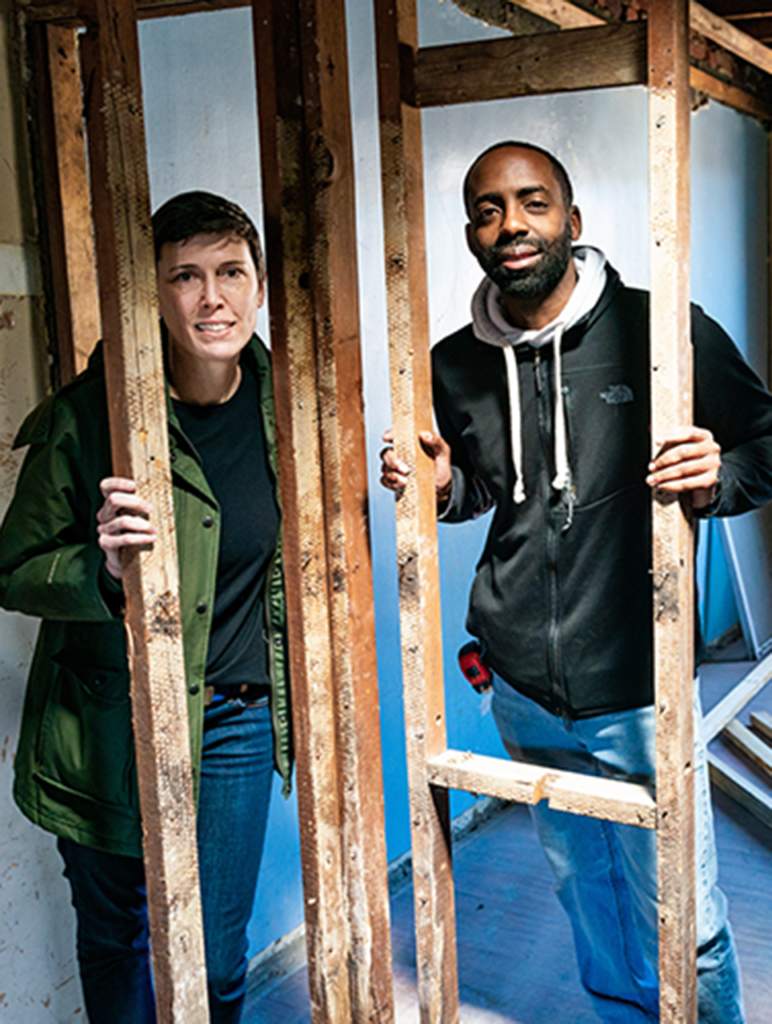

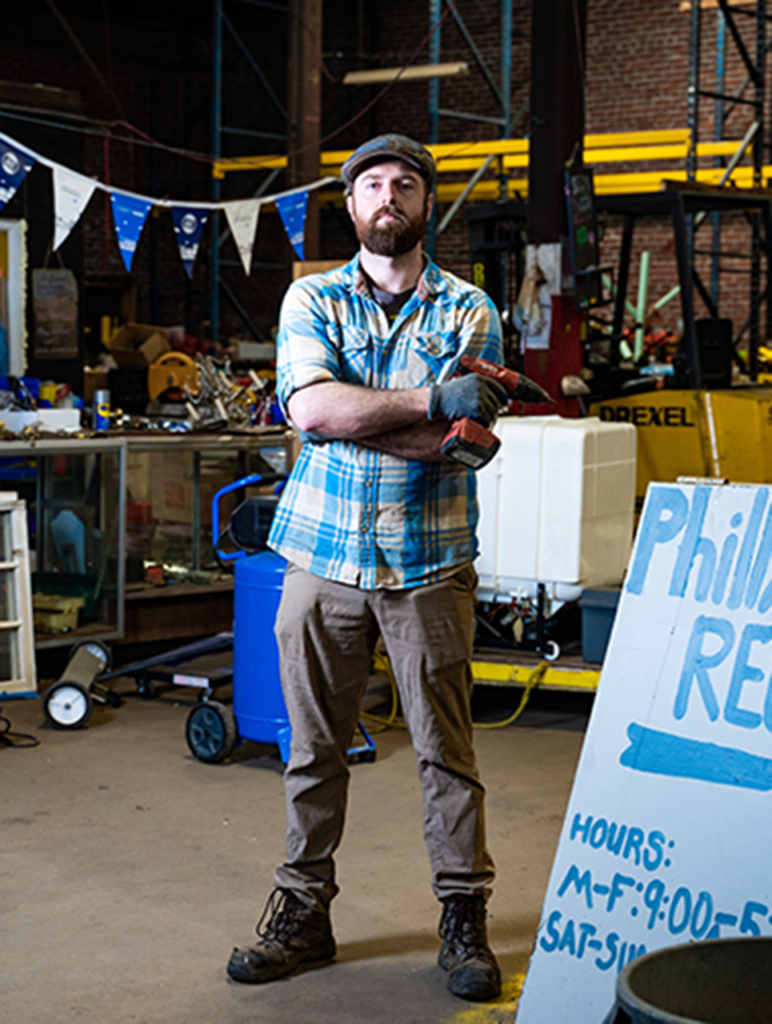

Avi Golen is a very enterprising and conscientious citizen who saw a way to earn money in simple garbage! After all, this is just the beginning of how many other enterprises there are that treat construction materials negligently, there are hundreds if not thousands of them, it’s good at least there are such responsible people who can tell you what to do with it! Respect to him and his friend!